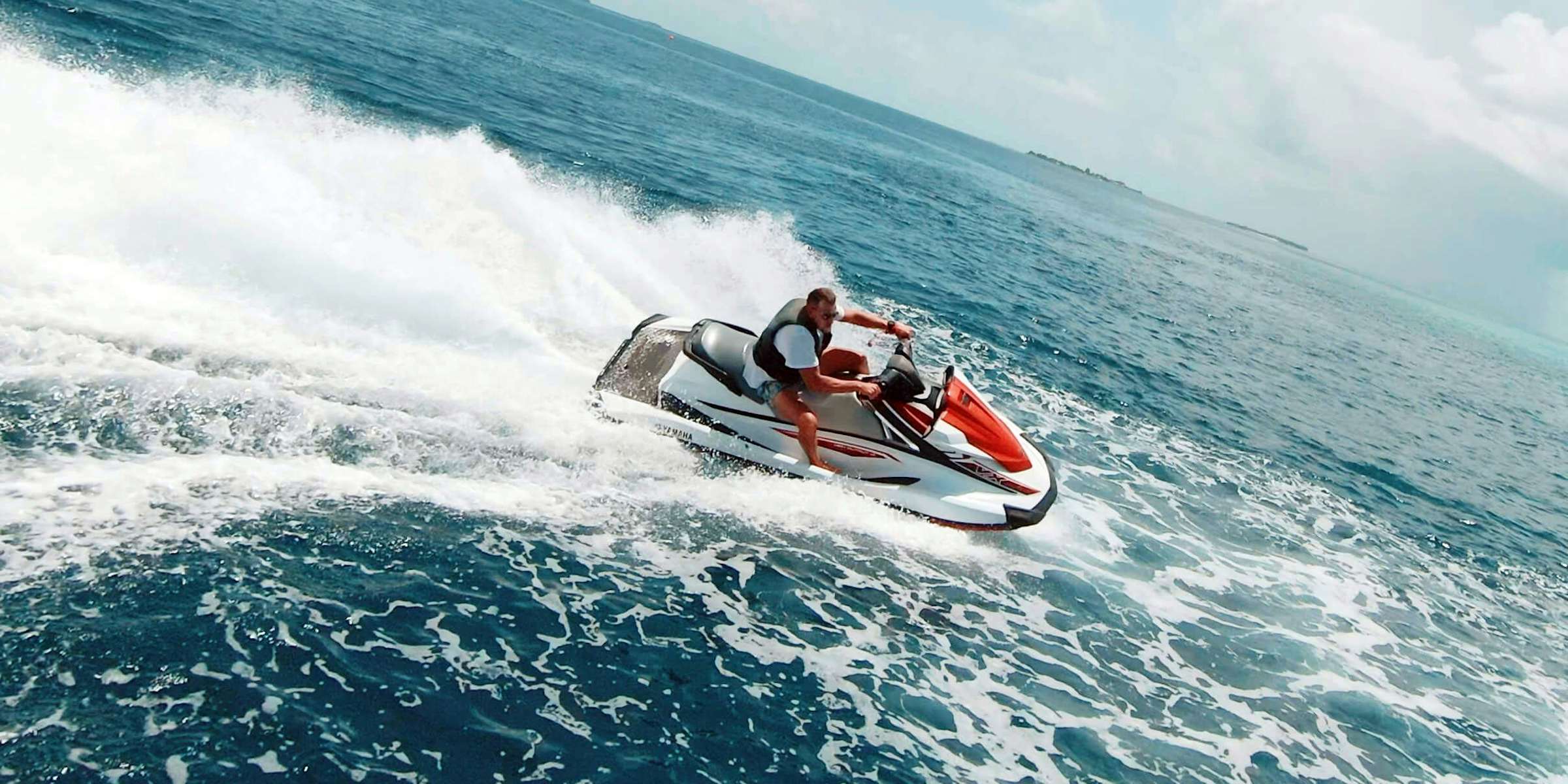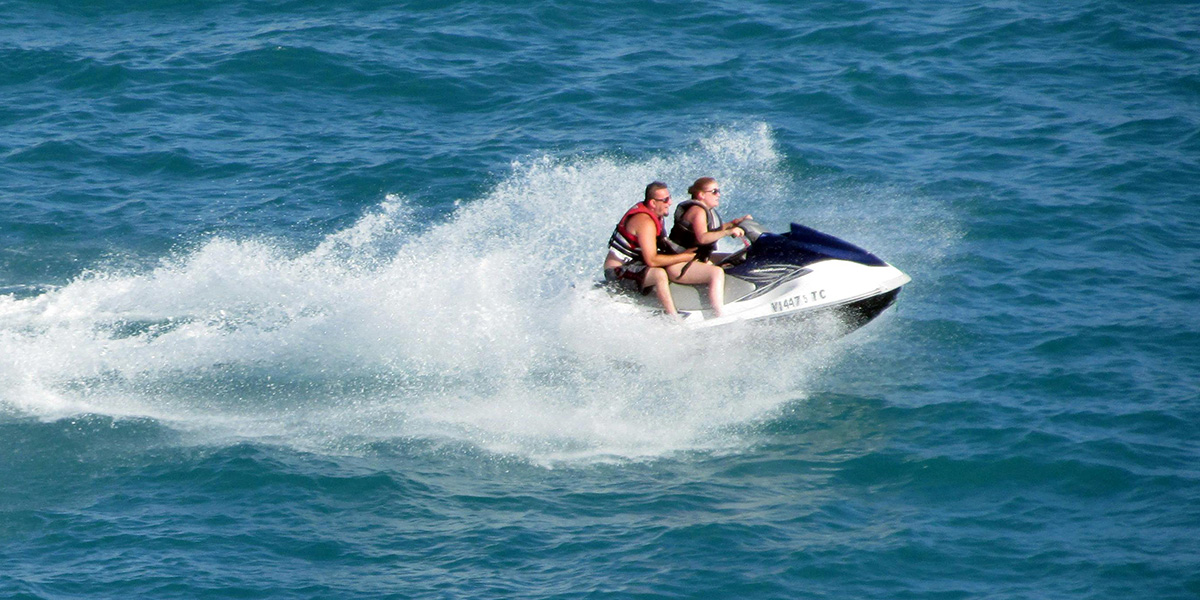
Jet Ski etiquette & safety tips
Flying across crystal-clear water on a crisp summer morning, spray hitting your face as you carve through perfect conditions on your jet ski - nothing beats that feeling of freedom on the water. But with jet ski ownership booming across New Zealand, there's never been a more important time to make sure you're doing it safely and considerately.
Recent incidents across our waterways serve as sobering reminders that these powerful machines demand respect. The good news? Most accidents are completely preventable when you know the rules and stick to them.
Jet skis are classified as "power-driven vessels" under New Zealand law, so every rule applying to powerboats applies to your personal watercraft too. The 2025 safety regulations now clearly define the "person in charge" concept - if you're operating it, you're fully responsible for safe operation and everyone's safety on board.
What you need to know
- Speed: Reduce your speed. Keep to 5 knots or less within 50m of people and other vessels and 200m of any vessel flying a dive flag. You should not exceed 5 knots within 30m of the shore in inland waters and within 200m of the shore in coastal waters. When choosing your speed, always consider the visibility, currents, waves, wind, and the presence of hazards.
- Right-of-way: When approaching another vessel head-on, you must always keep right (you should pass one another with both left sides of the vessels facing each other). If a vessel is crossing your path coming from your right side, you should always slow down and let it pass first. You should also do the same for non-powered vessels like canoes, kayaks, and sailboats.
- Noise: Be careful not to speed up near other boaters, the shoreline, or waterfront properties. Also, avoid travelling at high speed in the early morning when people may still be snoozing.
- Keeping distance: If you’re travelling at more than 10 knots, you must maintain a safe distance of 60 metres from people in the water and non-powered vessels, and 30 metres from any of the following: 1) boats anchored, moored or aground; 2) a boat ramp, wharf, pontoon, or jetty within 30m of people in the water; and 3) powered boats.
- Environment: Having fun on the water should not come at the expense of the environment. This doesn’t involve just litter, but also spilling oil or fuel. Also, steer clear of reefs and be sensitive to aquatic animals.
In addition, be mindful that harbours, channels, rivers and narrow stretches of water have their own set of rules. Read up on the signs posted around ramp areas and be aware of the lights and signals governing the water area you are riding on.
Jet ski exclusion zones exist! Different regions within New Zealand have their specific navigation safety bylaws determining where jet skiing is permitted and forbidden, check here for Auckland and here for the Waikato, for example. It is also illegal to use unregistered jet skis in some regions (by the way, it’s useful for identifying them if stolen).

And some safety tips…
- You must be at least 15 years of age to operate a jet ski by yourself. However, someone under the age of 15 can operate one if they are being actively supervised by an adult - this means within immediate reach of the craft’s controls, for example, on the back with the lanyard around their wrist
- Must wear…always wear an appropriately sized lifejacket and always have the safety lanyard attached to you, as the lanyard will immediately cut the jet ski’s engine if you fall from the craft
- Always carry two forms of waterproof communication - cellphone, VHF radio, flare, or personal locator beacon
- If you are using your jet ski for towing activities, remember it takes three to ski as you must have an observer on board (aged at least ten). If towing, travel in an anti-clockwise direction, keep your wake to a minimum, and do not tow between sunset and sunrise
- Know your responsibilities and improve your knowledge by attending a Coast Guard Boating Education course or, at the very least, read relevant safety material
- Always keep a careful lookout. Remember that swimmers and other water users may be obscured behind swells, waves, wakes or other vessels.
Insuring your jet ski
Jet ski insurance isn't just sensible, it's essential. Mariner's comprehensive coverage protects against sudden accidental damage to machinery, trailers, equipment, and accessories, including transportation, storage, launching, and retrieving.
Third-party liability cover is equally crucial. When sharing water with other boats, swimmers, and expensive waterfront property, comprehensive insurance gives you peace of mind to focus on having a great time on the water.
Safe riding starts with you
Jet skiing should be fun, but that fun comes with serious responsibilities. Recent tragic incidents remind us that a moment's inattention can have life-changing consequences. When you follow the rules, maintain equipment, and respect other water users, jet skiing remains one of the most exhilarating ways to enjoy New Zealand's waterways.
Stay informed about local bylaws, keep skills current, and remember that being responsible protects everyone sharing the water.